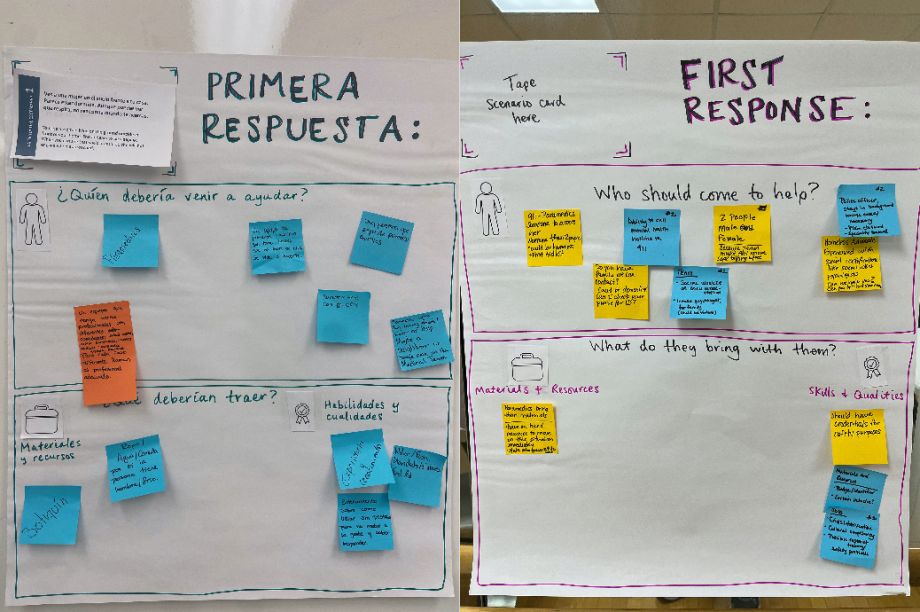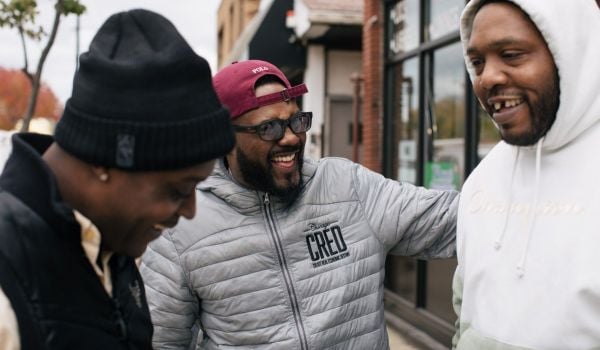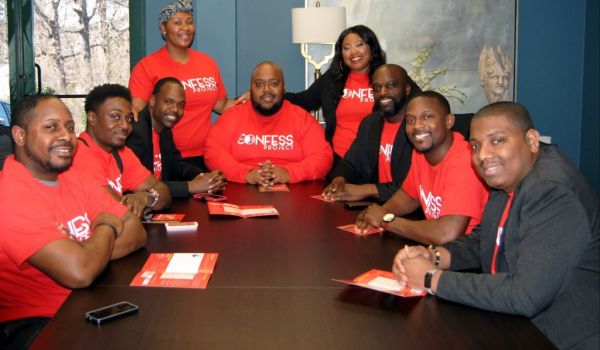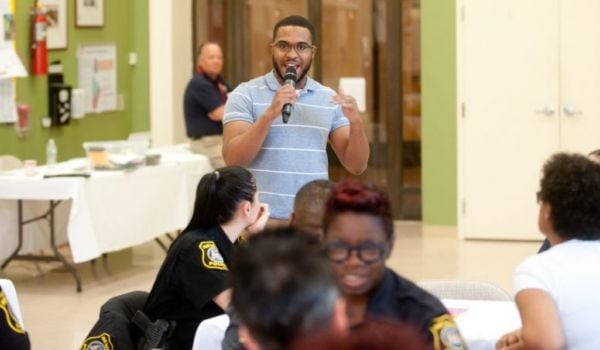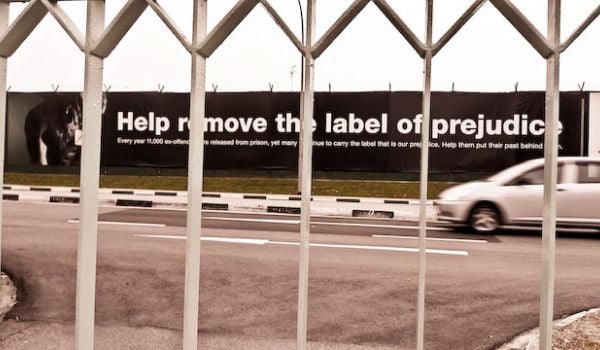When FUSE Executive Fellow Dr. Dwayne Campbell left his home to go on a ride-along with Durham Police Officer Douglas Beckett earlier this year, he gave his wife and son a special goodbye.
“It was a reality that I might not get home,” Campbell says.
Speaking as a Black social scientist working to reduce violence in Durham, North Carolina, Campbell says he doesn’t always trust the police — but his experience with Officer Beckett changed his perspective.
“He brought a deep sensitivity to individuals he served,” Campbell says. “It just shattered the perception I had. I went to the back of the car. He said, ‘No, sit in the front.’ There are many Doug Becketts out there. [I’m] so grateful and honored I had that experience.” Nonetheless, the interactions that make headlines are not those handled with such levels of sensitivity. Too often, officers’ training is misaligned with the situations to which they must respond.
Campbell’s experience was due to his FUSE executive fellowship supporting the Durham Community Safety and Wellness Taskforce, a collaboration between the city, county, and school district. FUSE partners with local governments, placing fellows into roles where additional leadership capacity can advance initiatives, pilot programs, and racial equity. In Campbell’s case, the goal is to cultivate a community-based approach to public safety in Durham that contributes to overall wellness and reduces violence, especially against historically marginalized populations.
After many years working with underserved communities as a teacher, coach, and advocate, Campbell became a FUSE Executive Fellow in hopes of “getting off the sidelines” and becoming an agent of change in his community. Becoming a father made this work personal. He was compelled to help create a safer and more just Durham in which his son could grow up.
Durham Community Safety Department is preparing to deploy four pilot programs that give residents additional support or deploy qualified professionals in certain emergency call situations, such as when an individual experiencing homelessness or a mental health crisis dials 911.
Beginning in June, each pilot will offer an alternative response to sending a police officer in response to emergency calls. The first is a 911-centered crisis call diversion program that will identify calls where law enforcement is not imminently necessary and where residents can be supported virtually. The second pilot is a crisis response team, comprised of a mobile group of mental health professionals that will be dispatched in response to appropriate calls. A third pilot involves co-response, where clinicians and police officers are dispatched together. The fourth pilot, which Campbells says is the first of its kind nationally, will send “care navigators” to conduct post-crisis check-ins to ensure callers have received adequate resources to help reduce the need for future 911 calls.
Marcia Owens, co-chair of the Durham Community Safety and Wellness Taskforce, would like to see a program supporting survivor care emerge from the fourth pilot. She envisions an initiative that helps survivors of trauma, particularly children, access the many services available to them. “We need to center our work in care and healing and repair for survivors of violence,” she says. “Our legal system is a mechanism of racial violence in every statistic you can find, so we are seeking to listen respectfully and thoroughly to survivors of violence in order to address their self-identified needs.”
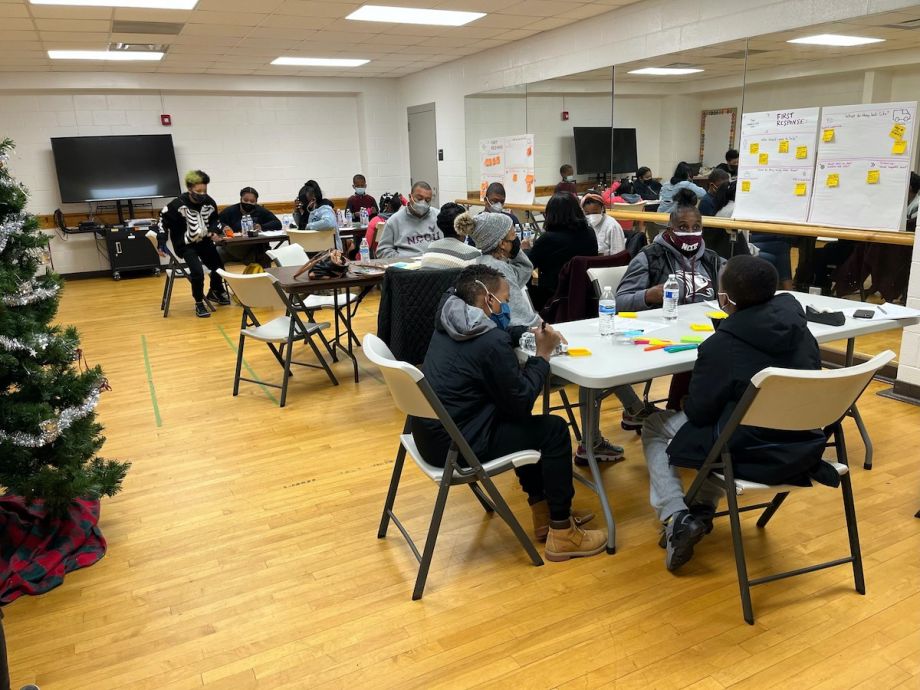
The Durham Community Safety Department holidays a community listening session at IR Holmes Recreation Center (Campus Hills Park) on December 12, 2021.
According to Campbell, the task force used 911 call data collected between 2017 and 2019 and data gathered by the nonprofit RTI International to learn more about trends in emergency calls. Owens says more than 80% of the people killed in Durham die from gunshot wounds, and the majority of those dying are young Black men averaging 27 years old. The Washington Post found that in the U.S., around 25% of the people shot and killed by police in 2015 were either mentally ill or in emotional distress. Experts have reported little to no progress in reducing gun and police violence since the murder of George Floyd and subsequent global protests in 2020.
Campbell believes that police officers are asked to do too much: act as social workers, counselors, law enforcement and more. He suggests that analyzing data from calls is critical to understanding how best to help. Xavier Cason, another committee co-chair, says working with Campbell has unlocked considerable potential for the city.
“He is speaking as a Durham resident who cares deeply, from the lens of a father and a husband,” Cason says. “This ‘how will this affect my family’ approach is what I appreciate and respect in his work.”
“This work is too important,” Campbell says. “I don’t want to sound too optimistic, but the truth is I have been given nothing but reason to hope. Our vision of a well and safe Durham will become our reality.”
Lonnie Lee Hood is a Tennessee-based journalist who covers politics, labor and news with an eye to the working class. They are working on their first book, “Redneck Revolution,” and live with their cat, dog and hedgehog.

